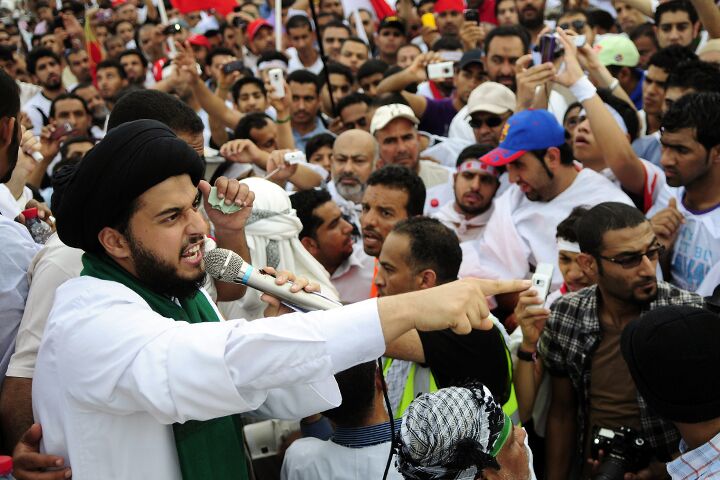
Saudi-Iranian Conflict Builds in Bahrain
Saudi Arabia sent over a thousand soldiers into Bahrain on March 14 to combat Iranian-fueled uprisings against Bahrain’s government.
Demonstrators from Bahrain’s Shiite majority have been protesting against the Sunni monarchy and government. But they have been egged on, supported and armed by Iran, through sympathetic clerics and political leaders. Stratfor reports that the Bahraini Hezbollah is the “premier underground militant organization in Bahrain, operating in coordination with the Islamic Revolutionary Guard Corps’ (irgc) Quds Force” (March 14).
An Iranian victory in Bahrain would give hope to the Shia in Saudi Arabia. It would empower them in the same way the rebels’ victory in Tunisia empowered the Egyptian protesters.
The Saudi kingdom would no longer be focusing on thwarting Iran’s advances—it would be too busy fighting for its own survival.
This would hurt the United States. And so would the ejection of its 5th Fleet currently stationed in Bahrain.
Hence Saudi Arabia’s decision to send troops. Under the aegis of the Gulf Cooperation Council’s Joint Peninsula Shield Force, Saudi Arabia has sent 1,200 soldiers and the United Arab Emirates 800.
Iran could respond by escalating the crisis and intervening directly. Or it could prod the Shia to keep up their protests, though the Saudis probably have the resources to quash this. It is not yet clear who will win.
But Bahrain is just one front in the Saudi-Iranian proxy war over the Gulf; the Islamic Republic could also stir up unrest in Shia-dominated areas of Kuwait and Saudi Arabia itself.
With the complete American exit from Iraq scheduled soon, Iran is already in a very powerful position.
As the Trumpet has often pointed out, in this current Middle East crisis we can see an alliance of nations led by Iran as prophesied in Daniel 11 coming together. This alliance will be between Iran, Iraq, Egypt, Libya and Ethiopia, among others.
But the same crisis is also revealing another prophesied alliance. Saudi Arabia, Turkey and other more moderate Arabic states will ally with Germany and Europe—the enemy of Iran.
Iran is clearly threatening Europe’s interests in the Suez and Mediterranean. It is threatening Saudi Arabia in the Persian Gulf and Yemen. Iran’s grand strategy pushes at both Europe and Saudi Arabia. As the old saying goes, My enemy’s enemy is my friend.
America’s foolish foreign policy that works against common interests of both the U.S. and Saudi Arabia is straining ties between the two. The Saudis will soon look to a more sensible and more courageous ally.
This alliance is prophesied in Psalm 83. For more information, see Trumpet editor in chief Gerald Flurry’s article “A Mysterious Alliance” and his booklet The King of the South for more details.
